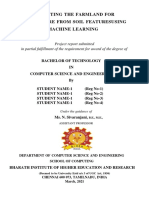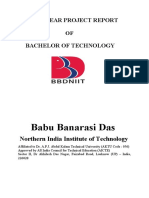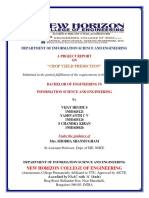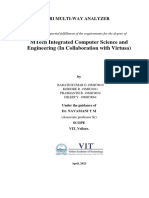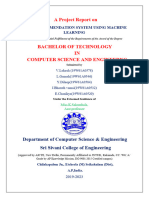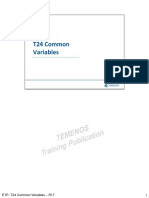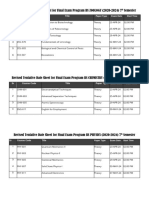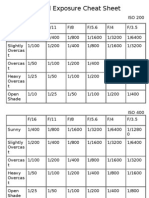0% found this document useful (0 votes)
27 views7 pagesMini-Project Report Format
The project report focuses on predicting total crop production and recommending alternative crops using machine learning and real-time data integration. It aims to assist farmers by providing insights on crop planning, disease detection, and tailored agricultural advice, while ensuring user-friendliness through voice interaction and regional language support. The project is conducted by students of Nagarjuna College of Engineering and Technology under the guidance of faculty members as part of their Computer Science and Engineering course requirements.
Uploaded by
shekhawatigroup789Copyright
© © All Rights Reserved
We take content rights seriously. If you suspect this is your content, claim it here.
Available Formats
Download as DOCX, PDF, TXT or read online on Scribd
0% found this document useful (0 votes)
27 views7 pagesMini-Project Report Format
The project report focuses on predicting total crop production and recommending alternative crops using machine learning and real-time data integration. It aims to assist farmers by providing insights on crop planning, disease detection, and tailored agricultural advice, while ensuring user-friendliness through voice interaction and regional language support. The project is conducted by students of Nagarjuna College of Engineering and Technology under the guidance of faculty members as part of their Computer Science and Engineering course requirements.
Uploaded by
shekhawatigroup789Copyright
© © All Rights Reserved
We take content rights seriously. If you suspect this is your content, claim it here.
Available Formats
Download as DOCX, PDF, TXT or read online on Scribd
/ 7




